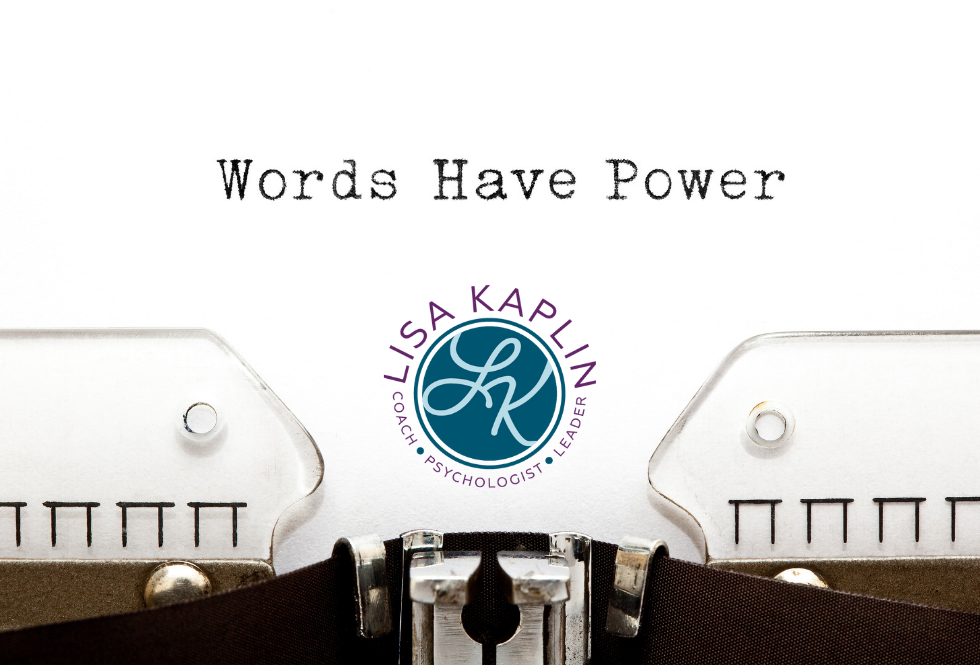Recently, I made some comments on social media about adoption and other related issues. In my post, I used the words “give up her baby for adoption.” I’ve also been known to use the words “put up for adoption.” A coaching friend sent me a truly loving private message asking if I would be comfortable with some feedback about my wording in that post. She told me that she finds those words hurtful in that she has an adopted son and she sees his adoption as one of not “giving up” or “putting up” a child for adoption, but rather a beautiful plan of love by his birth mother.
My friend’s feedback hit home. My own brother is adopted and he is one of the most important and loved people in my world. My life changed for the better the day he became my brother. Knowing his birth mother’s story, I know that she didn’t “give him up,” but rather made an adoption plan that was one of love and caring. The words we use around issues such as adoption do matter in that they tell two different stories. Maybe you are not adopted and don’t know anyone who is so you think to yourself, “What’s the big deal?” Yet to many others, it is a big deal. Thus it is not political correctness to change our words, but rather empathy and compassion for the feelings of others.
Another dear friend lost her teenaged son to suicide and she has also taught me some profound lessons on words. People often say, “He committed suicide.” The word committed is a strong one and actually not a truthful one when it comes to suicide. One dies from suicide and even more accurately, from depression in which suicide is often a symptom. My friend’s son did not commit anything, but rather died from a symptom of a deadly disease. Not only does that language show more compassion, but it also accurately describes mental illness as the disease that it is.
My own grandmother died from depression in the form of suicide. Although I was a pre-teen when she died, I remember the shame surrounding her death versus the compassion of how ill she was when she died. The language of “committing suicide” was not only false, but also influenced how my family grieved her death. Our grief was cloaked in silence and shame versus compassion and love. Words matter.
Developing a Language of Compassion
In a world filled with name calling, online vitriol, and bullying, it’s easy to chalk up our awareness to words and language as a form of “political correctness.” Yet think of how insensitive that really is. Just because some words or phrases wouldn’t bother you doesn’t mean they aren’t painful to others. Compassion and empathy means truly listening to others regardless of whether we agree with them or not. It means putting ourselves into someone else’s shoes and doing our best to truly hear their point of view and to empathize with it.
Listening to other's feelings and changing our language accordingly isn't political correctness—it's treating people with #compassion and #empathy. Click To TweetNext time you hear someone get upset about something, catch your own reaction. Are you saying to yourself, “Seriously? Get over it!” Then ask yourself how you feel when someone says the same to you. What would it cost you to actually hear someone out and then consider changing your words as a show of compassion to that person? The short answer is that it will cost you nothing but will profoundly affect the person you are listening to. Try it, it will change your life as well.
Love,

Lisa Kaplin Psy. D. PCC


As with so many of your blogs..this is a wonderful lesson for all of us
I receive dozens of newsletter and blogs – but Lisa, I read yours every single time.
Wow – ‘a plan of love’ instead of putting up or giving up for adoption – how beautiful!
I can offer an additional reason for changing the language around suicide also. As a suicide interventionist, my entire hope, belief and experience is that suffering individuals are not “committed” to suiciding at all. They do not want to die – they want relief from the pain they are experiencing in the life they are in at the moment. Their mental illness or state of mind does not allow them to have hope, see options, know a way out of their pain, or sometimes even comprehend that that their actions will result in the permanency of their death. They are emotionally and mentally exhausted from trying. Survivors of suicide attempts will tell you that they were not committed at all – they wanted to be stopped by someone who could give them hope.
Janet, thank you so much and I love your expanded explanation around suicide. So very true.